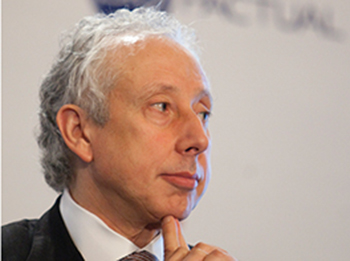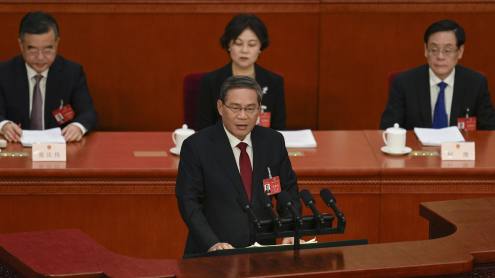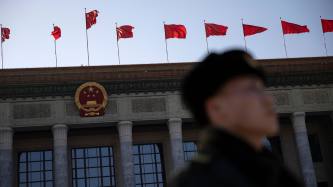Facing a serious liquidity crisis following a reputational hit, BTG Pactual’s managers moved fast. In the space of weeks rather than months, they embarked on a course of asset sales, shored up lines of credit and, most dramatically, changed the strategic course of the bank.
One major asset being sold, the Swiss private bank BSI, was only purchased finally in September 2015. In February the bank announced that BSI was being sold to Zurich-based EFG International for SFr1.33bn ($1.33bn), which is slightly more than the $1.25bn paid last year.
The deal had quadrupled BTG Pactual’s wealth under management and the aim was to have 60% of revenues overall coming from outside Brazil.
Corruption investigation
But all that changed on November 25, 2015, when BTG Pactual’s emblematic founder, André Esteves – who at the time was the bank's controlling shareholder, chairman and CEO – was arrested as part of the corruption investigation at Brazil state-owned oil company Petrobras. Mr Esteves, who has always maintained his innocence, was released from jail without charge on December 17 but by then the damage to BTG Pactual had been done.
Its share price had plummeted and investors were shifting their assets. The remaining BTG Pactual managers had to move fast if they were to save the company. The bank appears now to have been stabilised, but new chairman Pérsio Arida says it is “preparing for a long winter”.
“Reputational hits are very asymmetrical – you can lose reputation very fast and it takes a long time to rebuild it,” says Mr Arida, a former Brazilian central bank governor who helped set up the BTG part of BTG Pactual in 2008.
“It is true we had very good results in the fourth quarter [of 2015] but that has nothing to do with strategy. We should still continue to deleverage the institution unless credit lines resume. When credit lines are normalised we will be talking about something different.
“But this will take time and we have to plan the bank accordingly. Our base case scenario is that for this year at least 100% of the liabilities that will mature will be redeemed and not renewed. That may look too conservative but that is our base case. If it is better than that, wonderful, but we do not want to plan for anything better.”
Change in direction
In any case, the new firm will look very different from the bank of just a few months back. The international commodities business will remain but gone are Mr Esteves’s global ambitions and the emphasis now is back on wealth management and investment banking in Brazil and Latin America. But the renewed regional focus comes at a time when the regional economy – Brazil’s especially – is struggling.
The big advantage BTG Pactual had in putting in place a rapid turnaround strategy was the retention of its partnership culture even though it listed on the BM&F Bovespa in 2012.
Critical to this was a partnership agreement dating from 2008 that automatically transferred Mr Esteves’ shareholding into non-voting shares, allowing the remaining partners to quickly take control of the situation.
Four days after Mr Esteves’ arrest, the management was changed, with Mr Arida becoming chairman, head of international operations Huw Jenkins taking on the role of vice-chairman, and head of asset management Marcelo Kalim and chief financial officer Roberto Sallouti becoming joint CEOs.
Three days later, on December 2, the bank announced a change in controlling shareholders, with the majority of voting shares transferred to a holding company formed by the top seven partners. On the same day, the bank realised a 1.6bn reais ($400m) gain on its 11.3% share of Brazilian hospital operator Rede D’Or Sao Luiz.
Further asset sales followed over the next few weeks, including stakes in a Spanish water utility and a Brazilian real estate company. Brazil’s largest private sector bank, Itaú, purchased BTG Pactual’s stake in debt collection agency Recovery do Brasil as well as a portfolio of non-performing loans. Stakes in insurance units Pan Seguros and Pan Corretora are also on the block. Overall assets have been reduced by 12% on a balance sheet that includes BSI and by significantly more if BSI is removed from the total.
Emergency measures
As part of its emergency measures, BTG Pactual also obtained a 6bn reais credit line from Brazil’s credit guarantee agency, Fundo Garantidor de Créditos (FGC), guaranteed by part of the bank’s loan portfolio and personally by the controlling shareholders.
Mr Arida says: “We acted as fast as possible to change management, change control and sell assets as well as portions of the credit book. We proceeded very fast in the deleveraging of BTG Pactual. We took a prudential loan from the FGC and gave personal guarantees for it. Now we have entered the cost-reduction phase by reducing staff count in the US, UK, the rest of Latin America and Brazil.”
Mr Arida adds that the decision to preserve the partnership culture of BTG Pactual even after the firm listed was critical in being able to rescue it some four years later. “We became public in an original and unique way that was different from what happened at Morgan Stanley, Goldman Sachs or JPMorgan,” says Mr Arida.
“At the time it would have been hugely beneficial to the existing partners to sell their shares at the market price. But we thought that it would be a better value proposition in the long run if the partners did not sell their shares to the market. So we did a primary capital increase and some partners bought more shares but no one sold and, very unusually for a public company, no one has stock options. This means the objective is to maximise return on equity but not market value, which depends on factors out of our control. Preserving the partnership culture was the right decision as shown by the way the company managed the stress test of the past two months.”
Under the partnership arrangements, the partners change every year on December 31, based on merit. This maintains momentum at the firm and ensures that successful executives are rewarded for their efforts. But on December 31, 2015, the partners were not changed and a decision was made to wait for six months until the business situation became clearer.
Editor's choice
What next for Mr Esteves?
As for Mr Esteves's fate, even if he is cleared it is by no means certain that he will return to the bank. To do this, supposing he wanted to, he would need clearance from the central bank and agreement with BTG Pactual partners. While no one would dispute the critical role played by Mr Esteves in building up first Pactual and then BTG Pactual into a firm of international rather than just Brazilian repute, close observers of the firm refer to the “key man risk” of Mr Esteves’ former dominant role.
Mr Esteves first gained international recognition when he sold Pactual to UBS in 2006 and then for two years became CEO of UBS’s Latin American operations. On leaving UBS in 2008 he set up BTG and it bought Pactual back from the Swiss bank, which was by then facing its own problems from the financial crisis. He became emblematic of BTG Pactual and the face that everyone knew, which meant that if anything happened to him personally it dramatically affected the entire institution. Now with his absence – whether permanent or temporary – the entire strategy of the bank has changed.
The great irony is that when the thunderbolt hit the bank late last November, BTG Pactual was on course to deliver some of its best results. In any case, fourth-quarter revenues were up 37% over the third quarter and net income for the full year was 4.6bn reais, 35% higher than in 2014. Return on equity for the full year was 22%. Assets under management and administration fell from 230.5bn reais to 192.5bn reais over the quarter, according to an investor presentation, although figures from data provider Morningstar reported in the Financial Times show a larger drop.
The big impact on the results has been in principal investments, where there has been a 22% drop in revenues in the fourth quarter and a 12% drop over the year. The gains in selling off assets have been put into provisions to shore up the balance sheet in case of more difficulties. Cost cutting continues and the bank let go 305 of its 1653 Brazilian workforce at the end of January, with further staff cuts going ahead in its overseas operations.
The past few months have not been the happiest of times at the bank but at least the institution’s survival seems assured – albeit on a very different path from the one set for it by Mr Esteves.












